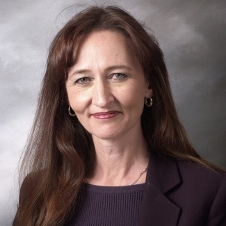- Medical Matters
Sleep: Time to Heal
by Lynn Keenan, MD
Fall 2023
Have you ever wondered why we spend so much time sleeping? I remember my first trip to Ireland, standing outside a pub with my brothers, talking with a local group who were young, energetic, starting their evening of fun, and laughing they didn’t need much sleep because you are “Long enough dead” to get caught up on sleep later. It seemed the perfect expression, reflecting the attitude of so many that when you are sleeping you are missing out on life.
It is a good thing that God created rats and mice so we can do all kinds of experiments and not feel too bad. Experiments such as prolonged sleep deprivation, which leads to a faster aging process and much shorter life. Or simulated jet lag studies—rodents placed on a schedule of frequent eastward travel also age faster/die sooner and have worse immune system since their inner clock (circadian rhythm) is not lined up with their environment. During sleep, many of our cells undergo the repair and remodel process to heal from the day’s wear and tear. Both the amount of sleep, and the timing of sleep, seems crucial to the healing process.
For men, chronically getting less than six hours of sleep is associated with less fertility due to lower testosterone production. Testosterone is produced mostly during REM (dream state), which typically has its highest concentration in the last third of an eight hour period of sleep. So, cutting out the last few hours of sleep diminishes the opportunity to produce testosterone. In addition, since we somewhat paralyze ourselves in the dream state so we don’t act out our dreams, REM is the time of greatest muscle relaxation. If a man has untreated sleep apnea, REM is the time of longest airway collapse from the muscle relaxation, leading to oxygen drops, which also shuts off testosterone production. So both sufficient length of sleep, and quality of sleep is key for optimal reproductive health. Although men will often be placed on testosterone supplementation if it is low, this worsens sleep apnea by increasing the weight of the neck by increased muscle mass blocking off the airway, which in turn will further lower his testosterone production. When sleep apnea is treated, and he is getting sufficient sleep, the natural production of testosterone usually returns in one to two months. However, if he continues to get the testosterone injections, the body will sense it has enough, and will not restart the production as much—so it is important to wean off the testosterone when the sleep apnea is treated.
For both men and women, insufficient sleep makes it very easy to gain weight, and hard to lose it. The insufficient sleep will raise the stress hormones, making one crave carbohydrates to get the energy that didn’t come from sleep, and generally makes a person not have the energy to run around and burn up those calories—hence creating the perfect setting for weight gain. With the weight gain, both men and women can develop sleep apnea easier, which has a strong negative effect on libido, especially in women. In addition, the weight gain can make women more prone to polycystic ovarian syndrome, with decreased fertility.
When sleep schedules change significantly, the inner clock/environment mismatch can cause havoc, as anyone who has traveled to the other side of the world knows, with the jet lag symptoms of fatigue, nausea, cloudy thinking, and interrupted sleep. In regards to fertility, many women’s cycles will become irregular with changing sleep times. For women who work night shift, with frequent misalignment of the inner clock, there is a higher risk of miscarriage.
So—enjoy a healthy night’s sleep—aim for seven to eight hours of sleep, with consistent bedtimes/wake times. Sweet dreams!
About The Author


